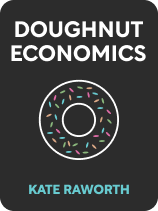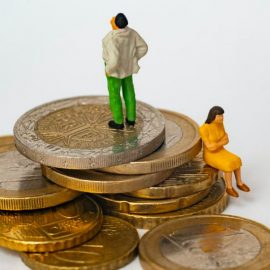

This article is an excerpt from the Shortform book guide to "Doughnut Economics" by Kate Raworth. Shortform has the world's best summaries and analyses of books you should be reading.
Like this article? Sign up for a free trial here .
What is rational behavior in economics? How accurate is this assumption that humans are inherently rational agents seeking to maximize their economic utility at the expense of everything else?
In economics, human beings are seen as largely rational agents. The rational economic man cares only about increasing his material wealth and will always follow incentives to do so. According to Kate Raworth, this portrait of humankind is grossly inaccurate. In her book Doughnut Economics, she calls into question the power of extrinsic incentives in driving human behavior.
Here’s why the assumption of rational behavior is ultimately flawed.
Extrinsic and Intrinsic Incentives
In her book Doughnut Economics, Raworth calls into question the assumption of rational behavior in economics that is rooted in the use of extrinsic incentives. She argues that extrinsic incentives (when you’re motivated to do something based on the promise of some external reward like money) can often have the perverse effect of crowding out or diminishing more intrinsic incentives (things you are self-motivated to do because you value them for their own sake, not because of the promise of a material reward).
And, Raworth writes, it is those intrinsic incentives that guide many of our more noble and socially beneficial behaviors like caring for our friends and family, participating in civic life, and upholding social and community norms of honesty and trust. Indeed, it is precisely because we are social beings that social incentives and human networks can be more powerful drivers of behavior, as can the actions of figures we admire and respect.
The Corrupting Influence of Extrinsic Incentives
In What Money Can’t Buy, Michael Sandel argues that replacing intrinsic with extrinsic motivations weakens our connections to one another and makes our society more selfish, individualistic, and, ultimately, fragile.
In particular, Sandel strongly critiques the over-reliance on economic or financial incentives as the most powerful driver of human behavior. He writes that economists place too much stock in the power of incentives—according to this standard economic model of human behavior, people are motivated almost entirely by self-interest. Therefore, if they are economically rewarded for engaging in socially “correct” behavior (or penalized for engaging in socially “wrong” behavior) they will align their behavior with their rational incentives.
But Sandel argues that such incentive-based thinking has expanded beyond the strict limits of the market to dominate all aspects of life—with incentives today governing our attitudes toward health care, education, and civic participation. It’s why, for example, some conservative economists are major proponents of turning certain government-provided social services like public education and health care into voucher programs: giving people a specified credit that they can use to purchase education or health care services from “vendors” of their choice, which will give those “vendors” an incentive to provide better services at a lower cost.

———End of Preview———
Like what you just read? Read the rest of the world's best book summary and analysis of Kate Raworth's "Doughnut Economics" at Shortform .
Here's what you'll find in our full Doughnut Economics summary :
- Why we need a top-to-bottom redesign of our global economic order
- Why long-term economic growth is unsustainable
- How inequality fuels a feedback loop that leads to more inequality






